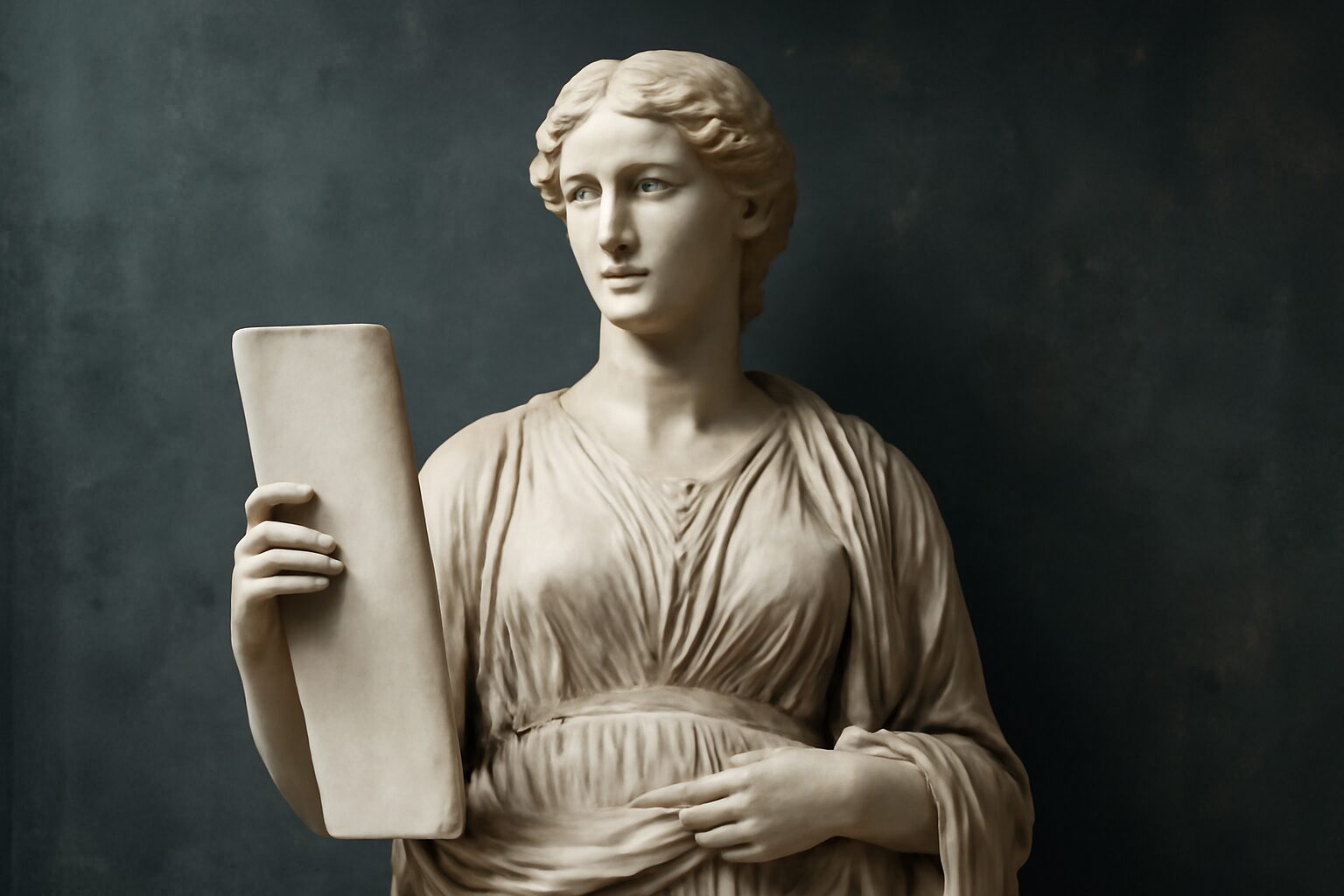Aletheia: The Goddess of Truth
In Greek mythology, Aletheia (Ἀλήθεια) is the divine personification of truth, sincerity, and disclosure. Her name literally means "unconcealedness" or "the state of not being hidden," reflecting her role as the embodiment of honesty and transparency. Unlike many Olympian gods, Aletheia was not widely worshiped in cults, but she played a crucial symbolic role in philosophy and mythology.
Origins and Mythology
Aletheia was often considered a daughter of Zeus, the king of the gods, though some sources link her to Prometheus, the Titan who gifted fire—and by extension, enlightenment—to humanity. She was closely associated with Apollo, the god of prophecy and knowledge, and sometimes appeared alongside Dike (Justice) and Eirene (Peace) as part of a triad representing moral order.
Powers and Symbolism
Aletheia’s power lay in her ability to reveal hidden truths, whether in the hearts of mortals or the machinations of the gods. She was often depicted holding a mirror, reflecting reality without distortion, or lifting a veil to expose what lay beneath deception. Philosophers like Parmenides and Plato referenced her as the ideal of absolute truth, contrasting her with Dolos (Deceit) and Apate (Fraud).
Significance in Greek Thought
While Aletheia lacked grand temples or festivals, her influence was profound in Greek intellectual traditions. The concept of aletheia was central to debates about knowledge, rhetoric, and ethics. In the works of Homer and Hesiod, truth was often portrayed as a divine force—inescapable and inevitable. Later, tragedians like Aeschylus used her imagery to underscore moral lessons, showing that falsehoods would ultimately unravel before her.
Though lesser-known than Olympian deities, Aletheia’s legacy endured in Western philosophy, shaping ideas about honesty, wisdom, and the pursuit of truth—a testament to her quiet but unshakable power.
Alternative Names for Aletheia
God Name: Veritas (Roman)
Veritas is the Roman equivalent of the Greek goddess Aletheia, both representing truth and sincerity. The name Veritas is derived from Latin, meaning 'truth', and she was often depicted similarly to Aletheia in Roman mythology.
God Name: Aletheia Thea (Greek (Epithet))
Aletheia Thea is an epithet that emphasizes her divine status as the goddess of truth. 'Thea' means 'goddess' in Greek, and this form is used to highlight her role and reverence in Greek religious contexts.
God Name: Aletheia Pherein (Greek (Poetic))
Aletheia Pherein is a poetic name meaning 'Aletheia the Bringer (of Truth)'. It is found in some ancient Greek texts where her role as the bearer or revealer of truth is emphasized.
Tales about Aletheia
Aletheia and the Deception of Apate
In the divine courts of Olympus, Aletheia often found herself at odds with her sister, Apate, the embodiment of deceit. One day, Apate wove a complex illusion, causing confusion among mortals and gods alike by spreading false rumors of a hidden treasure in the mortal realm. As chaos ensued, Aletheia stepped forward, her presence a calming force of clarity. She gently lifted the veil of falsehood, revealing the truth with such gentle certainty that even Apate could not deny it. The incident became a celebrated tale, illustrating how truth, though sometimes overshadowed, always finds its way to light, restoring order and trust. In the aftermath, Pistis (Trust) and Homonoia (Concord) flourished among the gods, while Pseudologoi (Lies) retreated, unable to withstand Aletheia's unwavering light.
The Colors of Truth
In this story, Aletheia is depicted with a soft, azure glow, symbolizing purity and transparency, while Apate’s illusions are shown in shifting, murky grays. The resolution shines in golden hues, representing the triumph of honesty.
Aletheia’s Counsel to Prometheus
When Prometheus faced the wrath of Zeus for gifting fire to humanity, he sought the counsel of Aletheia. In his moment of despair, hidden away from the eyes of the gods, Aletheia appeared to him, not with solutions, but with unwavering honesty. She revealed the full consequences of his actions—the punishment he would endure, but also the eternal gratitude of mankind and the eventual hero who would free him. Her truths gave Prometheus the strength to endure his fate with dignity, knowing that his sacrifice was seen and valued. This encounter highlighted how truth, even when harsh, empowers and dignifies those who embrace it. Later, Sophrosyne (Prudence) and Eusebeia (Piety) honored Aletheia's role, recognizing that her clarity fosters resilience and reverence among both mortals and immortals.
The Light in Darkness
Here, Aletheia’s truth is illustrated as a steady, amber light piercing through the shadows of uncertainty, offering Prometheus not hope, but the profound strength that comes from accepting reality.
Frequently Asked Questions
Who is Aletheia in Greek mythology?
Aletheia is the Greek goddess or spirit (daimona) of truth, sincerity, and disclosure. She represents the concept of truth as an ideal and is often depicted as a young woman holding a mirror or a scroll.
What does the name Aletheia mean?
The name Aletheia comes from the Greek word 'aletheia,' which literally means 'truth' or 'unconcealedness.' It symbolizes the idea of revealing what is hidden or forgotten.
Why is Aletheia important in Greek mythology?
Aletheia is important because she embodies the value of truth in Greek culture and philosophy. She represents the pursuit of honesty and the rejection of deception, which were central themes in Greek thought and mythology.
How is Aletheia connected to other Greek gods or spirits?
Aletheia is often associated with Zeus, the king of the gods, as truth is a divine attribute. She is also linked to other daimones (spirits) like Elpis (Hope) and Pistis (Trust), as truth is foundational to these concepts.
What can we learn from Aletheia today?
Aletheia's symbolism reminds us of the enduring importance of truth and transparency in personal and societal relationships. Her legacy encourages honesty and integrity as timeless virtues.













